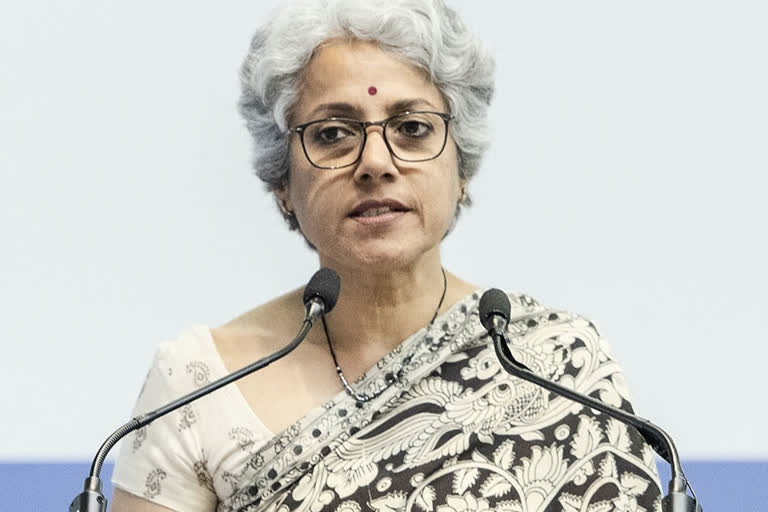Hyderabad:Underlining the importance of adequate testing for Covid-19, World Health Organisation's (WHO) Chief Scientist Dr Soumya Swaminathan on Tuesday said that India's testing rate is low, compared to other countries which have done well in combating the pandemic.
"India, as a whole, has a low testing rate compared to some of the countries which have done well like Germany, Taiwan, South Korea, Japan and even the US," she said while speaking on 'The vaccine race, balancing since and urgency' organised by the Telangana government.
Participating via video-conferencing, she said that every public health department needs to have benchmarks like what is the test rate per million and what is the test positivity rate. "The moment your test positivity rate is above 5 per cent, you know that you are not testing adequately," she said.
She said the WHO had been repeatedly emphasising that testing is extremely important. "Unless we do testing adequately, we don't know where the virus is. If you are not testing, you are fighting a fire blindfolded. We have to test, test and test."
Swaminathan said for at least the next 12 months, countries need to put in place public health and social measures that have been shown to work. She pointed out that some countries controlled the virus successfully in the first phase because of good governance, good strategic planning based on scientific knowledge, and evidence and because of involvement of the community and individual trust, and good communication between the government and people.
She, however, added that testing alone was not going to solve the problem and it has to be followed by isolation of positive people, contact tracing, quarantining, taking care of positive people, and following them up to make sure they don't get into interstitial pneumonia or complications by monitoring their oxygen saturation.
"It is a comprehensive package which needs to be put in place, particularly in places where there is a high density of population like cities."
Swaminathan stressed the need for Influenza-Like Illness (ILI) and Severe Acute Respiratory Infection (SARI) surveillance in rural areas but said for cities, the only way out was to expand testing.
She said the novel coronavirus has established itself in the world and gone practically into every country and wherever it has found a situation where it was able to spread easily from person to person, it established community transmission.
